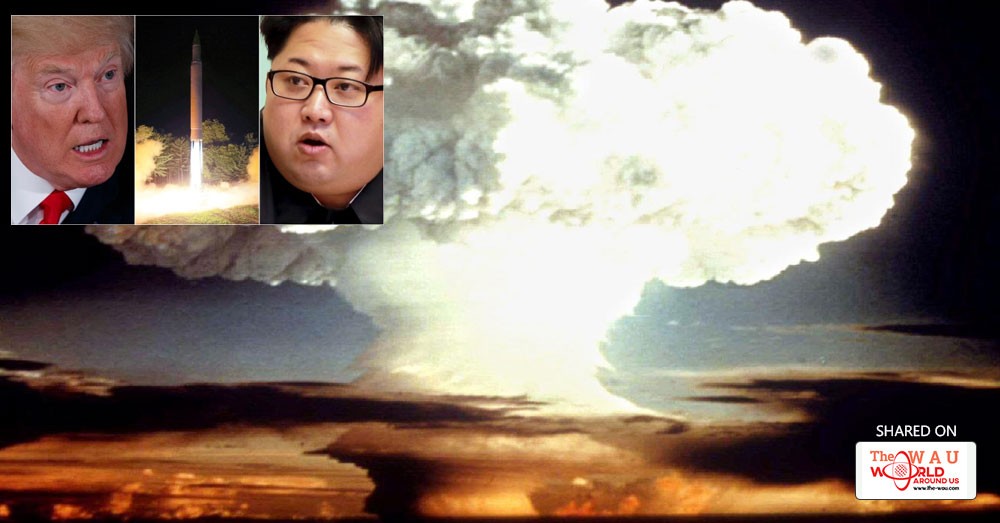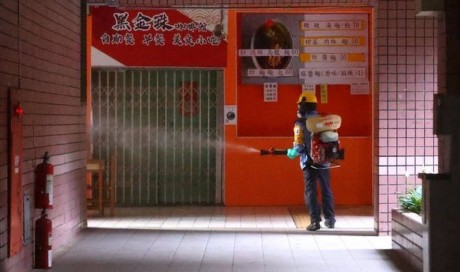A Japanese survivor of one of the only two nuclear attacks ever conducted in history has appealed to world leaders to abandon the weapons of mass destruction and enact a comprehensive ban on their production, testing and possession.
"None of them having (nuclear) weapons will contribute toward having peace," Tokuko Kimura, 82, said Monday at an anti-nuclear weapons event in New York City, according to The Japan Times.
Kimura was 10 years old when the U.S. Air Force dropped the so-called "Fat Man" atomic bomb on her city of Nagasaki in August 1945. The event, along with a second atomic bombing on the Japanese city of Hiroshima three days later, killed at least 250,000 people and brought an end to World War II. It also introduced the world to the vast destructive capabilities of nuclear power, inspiring similar programs in other countries, the most recent being North Korea. As the world's first nuclear power threatens to disarm the latest, Kimura urged all governments to outright ban such weapons.
"The bombing happened in an instant, but the survivors can never forget. I don't want anyone in any country to experience the hardship that I and fellow survivors have endured," she added, according to Japan's official outlet NHK News.
Kimura was joined at the U.N. headquarters building by Akira Kawasaki, a member of the 2017 Nobel Prize-winning International Campaign to Abolish Nuclear Weapons (ICAN), and family members of others affected by the 1945 atomic bombings. The event, organized by Japanese non-governmental organization Peace Boat and the U.N. missions of Austria and Costa Rica, was designed to pressure countries into signing the Treaty on the Prohibition of Nuclear Weapons.
The treaty, which has been opened for signing since September 20, needs to be ratified by 50 countries in order to come into effect. So far, 53 nations have signed, but only three —Guyana, the Holy See and Thailand— have ratified the historic agreement. The two countries most responsible for bringing nuclear weapons to headlines lately have neither signed nor ratified the treaty.
The U.S. does not recognize North Korea's self-proclaimed right to develop and possess nuclear weapons for deterrence purposes and President Donald Trump has threatened to disarm the reclusive, militarized state by force. North Korean leader Kim Jong Un, however, has overseen significant advances to his country's nuclear and ballistic weapons program, vastly increasing the lethality of a potential strike against his country.
North Korea's nuclear weapons program began under Kim's grandfather and the country's founder, Kim Il Sung. North Korea tested its first nuclear weapon in 2006 under his successor, Kim Jong Il, followed by a second test in 2009. Under the youngest Kim, who took power in 2011, North Korea has conducted four more nuclear tests, the most recent being a hydrogen bomb test last month that was by far more powerful than the previous five combined.

NUCLEAR EXPLOSION DATABASE/PREPARATORY COMMISSION FOR THE COMPREHENSIVE NUCLEAR TEST BAN TREATY ORGANIZATION/REUTERS

NUCLEAR EXPLOSION DATABASE/UNESCO/PREPARATORY COMMISSION FOR THE COMPREHENSIVE NUCLEAR TEST BAN TREATY ORGANIZATION/REUTERS
North Korea also tested in two intercontinental ballistic missiles (ICBMs) in July, placing the U.S. mainland in North Korea's missile trajectory for the first time. Defying U.S.-led sanctions from the U.N., North Korea has continued to develop and test its weapons, arguing that abandoning such efforts could allow a Western invasion, as it did Iraq and Libya.
The dispute has led Trump and Kim, along with their respective administrations, to trade violent threats and mean-spirited insults toward one another, keeping allies and foes on edge.
While the U.S. and North Korea have arguably been most vocal about their nuclear arsenals in recent months, Russia actually has the largest stockpile of nuclear weapons with an estimated 7,000 warheads. The U.S., Russia, China, France and the U.K. are all signatories to the 1968 Treaty on the Non-Proliferation of Nuclear Weapons, but nuclear powers India, Israel and Pakistan have not. North Korea acceded in 1985 but withdrew in 2003.
Share This Post












